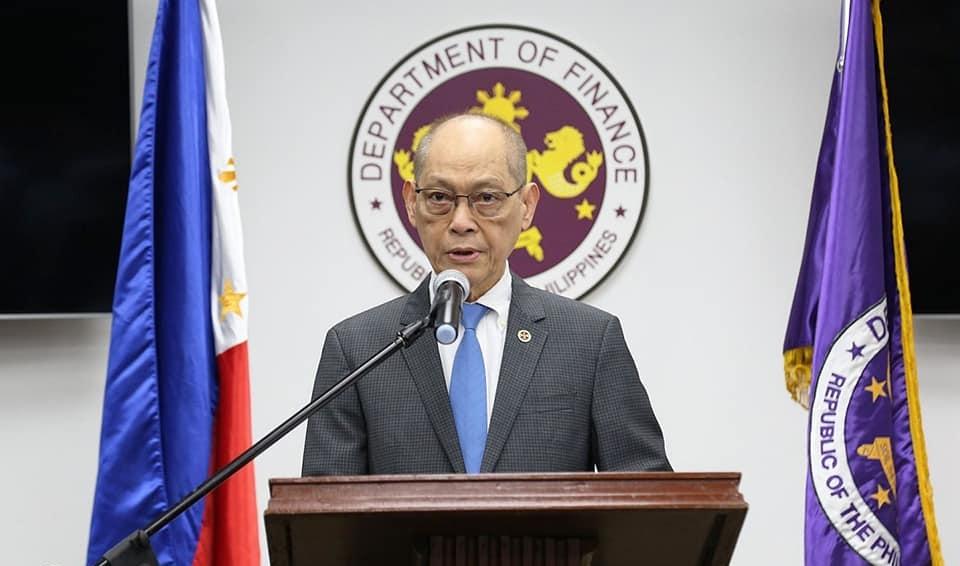DOF chief Diokno nixes fuel excise tax suspension

Finance Secretary Benjamin Diokno on Tuesday warned against suspending the collection of excise tax on petroleum products as it could result in billions of pesos worth of revenue loss and in the widening of the fiscal cap.
During a consultative meeting with Speaker Martin Romualdez and ACT-CIS party-list Representative Erwin Tulfo on Monday, oil industry stakeholders sought to suspend the collection of excise tax on oil.
In a message to reporters, Diokno said the proposal will “adversely affect our economic and fiscal recovery, our international credit ratings, and our overall debt management strategy, while benefiting primarily the rich and without providing lasting inflation relief.”
“The revenue loss and its fiscal implications are awesome,” Diokno said.
The Marcos administration’s chief economic manager said the estimated government revenue loss is at P72.6 billion — P41.4 billion in excise tax and P31.2 billion in value-added tax (VAT) — or 0.3% of gross domestic product (GDP) for the last quarter of 2023 alone.
Diokno said since the projected revenues are already programmed under the 2023 budget, the suspension of excise tax collection on fuel would also lead to an increase in the country’s fiscal deficit levels from 6.1% to 6.4% of GDP in 2023.
The higher budget gap will consequently “result in higher public debt-to-GDP ratio — from [projected] 61.4% to 61.7%,” according to Diokno, noting that “revenues lost will mean additional borrowings and interest for the country.”
For the entire 2024, the forgone revenues will amount to P280.5 billion or 1.1% of GDP in total excise tax (P168.2 billion) and VAT (P112.3 billion) on fuel products.
This will then lead to higher fiscal deficit from 5.1% to 6.2% of GDP, and higher debt-to-GDP ratio from a projected 60.2% to 61.3%.
“With the deterioration in the fiscal picture, we run the risk of an international credit rating downgrade,” Diokno said.
“This will increase the risk premium for government borrowings, consequently another round of higher debt servicing. Private sector borrowings will become costlier and have a negative impact on private investment and economic growth,” he added.
“Higher borrowings now will further increase our interest payments and deficit in the future, while reducing fiscal space for crucial social and economic programs.”
Targeted subsidies
Instead of suspending the excise tax on fuel, Diokno said that “best approach is targeted subsidy to the poor who will be affected by the high fuel prices, to jeepney operators, farmers, and fisher folks.”
“We did this during the height of the oil price increase owing to Russia’s invasion of Ukraine. This targeted [subsidy] gained the approval of the IMF (International Monetary Fund) and other international organizations,” he said.
This, as suspension of the fuel excise tax is “regressive” and “inequitable” and would only benefit the top 10% of households who consume around 49% of total fuel consumption.
“The bottom half of households consume only around 10%,” Diokno pointed out.
The Finance chief said that while the removal of taxes is a popular move for politicians, “legislation takes time.”
“Once the elevated oil prices subside, it may not be easy to restore taxes on oil products. It is politically unpopular. That’s the political economy of tax legislation. This has serious implications on fiscal sustainability,” Diokno said.
“When you formulate policy, you always think of what’s the greatest good for the greatest number,” he said.
'Very dangerous'
For his part, National Economic Development Authority (NEDA) Secretary Arsenio Balisacan said the suspension of the excise tax on oil will only worsen the inequality in the country.
"No, of course not," Balisacan told lawmakers when asked if he is favor of suspending excise tax on oil during a budget briefing at the House of Representatives.
"Suspend it for three months? That is very dangerous, even for a month," he said.
"We are a country with so much social and economic inequality, inequality in access to public services. We don’t want to make that inequality even higher by including subsidies that will disproportionately benefit the upper class," Balisacan added.
Like Diokno, Balisacan said he prefers assistance to the affected sector.
"We would rather have a targeted assistance program for the poor and public utility vehicle drivers," he said.
Senator Koko Pimentel, in a separate statement, called on the government to provide a "lifeboat" to the countless Filipinos struggling with the skyrocketing fuel prices.
"Every week, our fellow Filipinos face the challenge of ever-increasing fuel prices. They need a lifeline now. I hope the government understands the gravity of the situation and the urgency of intervention to alleviate their hardship," Pimentel said.
Calls to suspend the excise tax on petroleum came amidst the 11 consecutive weeks of hikes in both the per liter prices of diesel and kerosene and 10th straight week for gasoline.
Pimentel said he is open to proposals to suspend the excise tax on imported oil and bio-ethanol as immediate measures to bring down the prices of fuel in the country.
“The suspension of the excise tax could offer a temporary respite and serve as an effective lifeboat for Filipinos struggling to cope with the sky-high fuel prices,” he said.
He warned that if the sky-high prices of fuel products are not promptly addressed, the country can expect inflation rates to soar, further impacting the economic well-being of every Filipino. —with Llanesca T. Panti/KBK, GMA Integrated News




